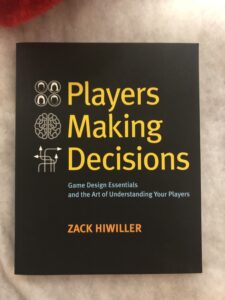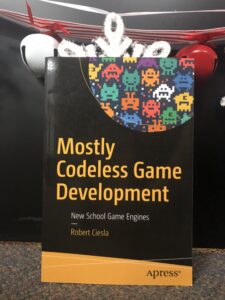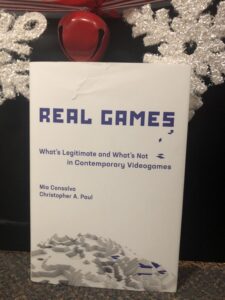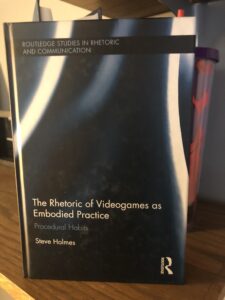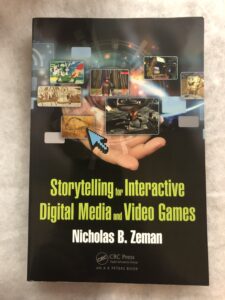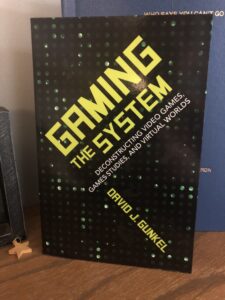Video games are an interesting field of study in today’s academic world. For a while, they were thought of as mindless garbage (okay, to be honest, there are probably tons of people who still think this i.e. my grandparents), yet the recent developments of video games have garnered more attraction from all walks of life and scholarly research into these games. Andrew Ervin even sets out to understand the explosive popularity of video games. No longer are they simplistic ideas of trying to get a frog across a highway or a yellow circle earing up dots. Theses games have stories as compelling as books.
Now that these games are more accepted they allow scholars to analyze and explore how these games affect our understanding of the wider world. In Gaming the System, Gunkel explores how philosophical traditions, put forth by thinkers like Plato, Descartes, Kant, etc., can help us explore and conceptualize recent developments in video games, game studies, and virtual worlds. Surprisingly, these games cross disciplines as well. Serious Games in Physical Rehabilitation demonstrates how videogames can be a valuable tool in clinics and how clinicians can use them in physical rehabilitation for various pathologies. And The Rhetoric of Videogames as Embodied Practice offers a critical reassessment of embodiment and materiality in rhetorical considerations of videogames.
No longer are games thought of in a vacuum, if they ever were. Not only has the ivory tower of universities started to realize that video games are a worthwhile field of study, but this field is also one that is crossing into other subjects and areas of thought. It truly shows you can’t judge a book…or a game…by its cover.

